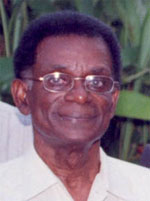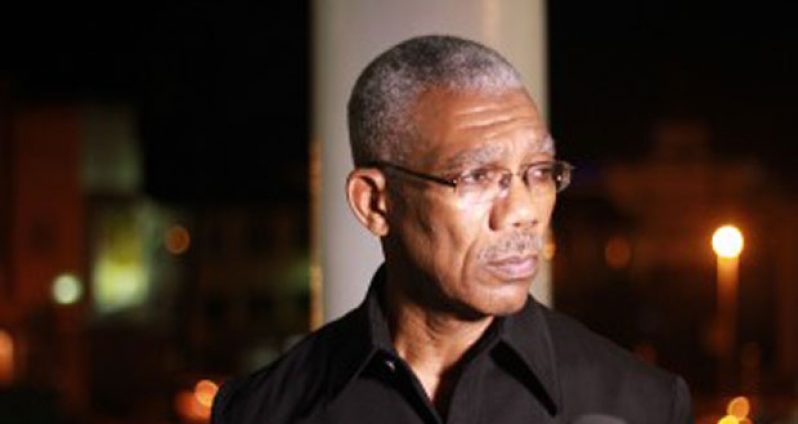–after party’s 18th biennial congress
Analysis by Rickey Singh
AGAINST the backdrop of controversies based on claims of rigged elections at the 18th biennial congress of the Peoples National Congress Reform (PNCR), the party’s battle-scarred leader, David Granger, has the choice of dis-engaging from ostrich-like politics.Or, alternatively, to wisely pursue the politics of healing and unity—both within the party and the wider and more challenging national front.

To do otherwise would be to further endanger his leadership role and, by extension also weaken the PNCR’s chances of a return to government—this year or whenever–from which it was removed in 1992 after the end of institutionalised electoral fraud that lasted for a quarter century from 1968.
While publicly the former Brigadier of the Guyana Defence Force would seek to carefully manage his public denial mode over what seems a favourite political pastime for his party—electoral rigging-he owes it to himself, party and country to seriously pursue a critical re-assessment of why the PNCR should move away from the ole’ politriks in favour of a new brand of structured consultations with the government—in Guyana’s national interest.

This may require, at the outset, a quantum leap in a country which, for far too long, has been afflicted by the rhetoric of national unity from both the governing People’s Progressive Party and the PNCR but with tangible new, creative initiatives sadly lacking.
Clive Thomas
In this context, therefore, instead of the glib talking about him not “seeing any damage” to the PNCR’s public image, as a consequence of bizarre occurrences at the party’s 18th biennial congress, Granger should pay heed to the expressed disappointment over his leadership on the vital issue of forging national unity.
A report in the “Guyana Times” of July 26 quoted Dr Clive Thomas as saying that he felt “let down” by APNU’s failure to exercise initiatives with the PPP for “a national unity government.”
According to Thomas, the expectation by the WPA—of which it is a founding affiliate—was that APNU would have been forthcoming in persuading the governing PPP in the direction of a “national unity” government.
From the inception of the APNU coalition that has manifested as APNU, the intention was “not to contest the PPP for power but to encourage it to form a national government…but there is a gridlock…”
The reality, however, instead of even consultations between APNU–(of which Granger is chairman and the WPA’s Rupert Roopnarine is deputy chairman) and the government—both APNU and the minority Alliance For Change (AFC) seem more committed to confrontation politics.
`Hence, the prevailing cynicism when both of these major parties talk in favour of “national unity.”
Latest indication emerged on ‘Emancipation Day’ when, in contrast to the quite positive positions achieved by Guyana on the UN’s Human Development Index (HDI), Granger, the PNC leader and APNU chairman was to come forward with his strange claim that this country had become more “unstable” and in a “crisis” state with respect to human development challenges.
Barbados—Opposition politics
Meanwhile, across in Barbados, the big political shock was the unexpected dramatic development on Friday July 25 with the resignation from the party by its former three-term Prime Minister, long-serving leader and member of some 43 years, Owen Arthur.
An economist by profession, who has long been credited as being among the more passionate intellectual advocates for sustaining regional economic integration, the 64-year-old Arthur told shocked supporters and critics alike that he was fed up of being viewed as a “source of (internal) discord.”
Significantly, Arthur’s decision to quit the BLP came within two days of having stayed away from the party’s march of protest against the government’s controversial Solid Waste Tax (SWT)—as earlier reported in the Express.
Some 5,000 supporters had participated in the anti-SWT march from Parliament Building to Government Headquarters—distance of about three quarters of a mile, and brainchild of the BLP’s leader, Mottley.
She had led the peaceful protest walk, that included all of the other 11 party parliamentarians—the lone exception being Arthur whose historic resignation she received the following day.
It was the first time for the BLP—one of the Caribbean’s oldest parties—to face such a momentous occurrence from a former Prime Minister with the intellectual stature and as a long-standing leader like Owen Arthur.
Yet, the quietness that currently prevails within the BLP should soon pass as its dynamic and controversy-prone leader, Mia Mottley, and her remaining 11 parliamentary colleagues deliberate on new political strategies in dealing with the Democratic Labour Party’s administration of Prime Minister Freundel Stuart.
Such political developments would have to await the final rounds of celebrations of this year’s “Crop-Over Festival” (Bajans’ ever-popular annual carnival).












